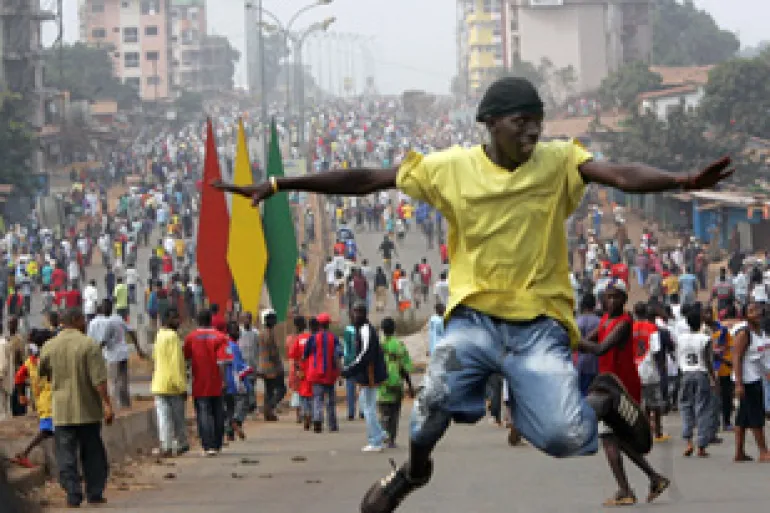
Guinea’s capital, Conakry, ground to a halt on Monday as an indefinite general strike commenced, posing a significant challenge to the ruling junta that seized power in 2021. The junta, which had previously banned protests and stifled dissent, now faces a test of public discontent.
Major unions have called on both public and private sectors to participate in the strike, demanding the release of a prominent media activist, reduction of food prices, and an end to media censorship. Conakry witnessed deserted schools, shops, markets, and roads as young protesters erected barricades on key thoroughfares. The strike aims to highlight the public’s frustration with the perceived artificial suffering imposed by the leaders.
The general strike follows the unexpected dissolution of the transitional government, in power since July 2022, by the military junta a week ago. The junta also took measures such as seizing government members’ passports and freezing their bank accounts, without providing a clear explanation for the dissolution.
Amid press censorship and crackdowns on media outlets, journalists have played a prominent role in protests. Television channels were removed, radio frequencies disrupted, and internet access restricted, with the unions demanding the immediate release of Sekou Jamal Pendessa, the secretary general of the Union of Press Professionals of Guinea, who was arrested for participating in an unauthorized protest.
Despite the lifting of internet restrictions a week ago, protests remain a rare occurrence under junta leader General Mamady Doumbouya, who seized power in a September 2021 coup. The junta had imposed a ban on all demonstrations in 2022, arresting opposition leaders, civil society members, and the press.
Guinea, rich in minerals, has a history of decades of dictatorial rule since gaining independence from France in 1968. The military junta, under international pressure, has pledged to return governance to elected civilians by the end of 2024. However, accusations of authoritarianism from the opposition persist, raising concerns about the country’s political future.
